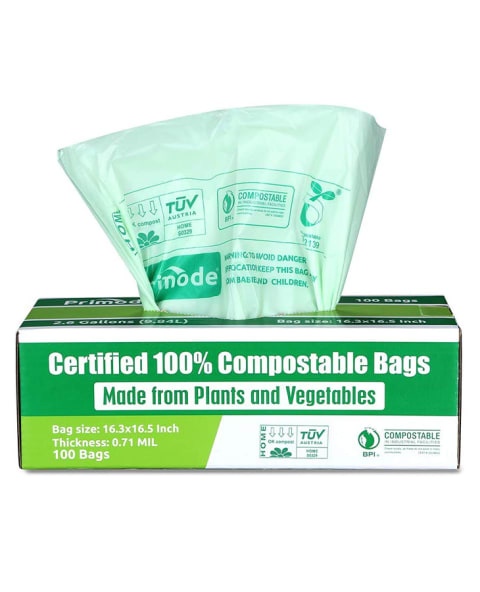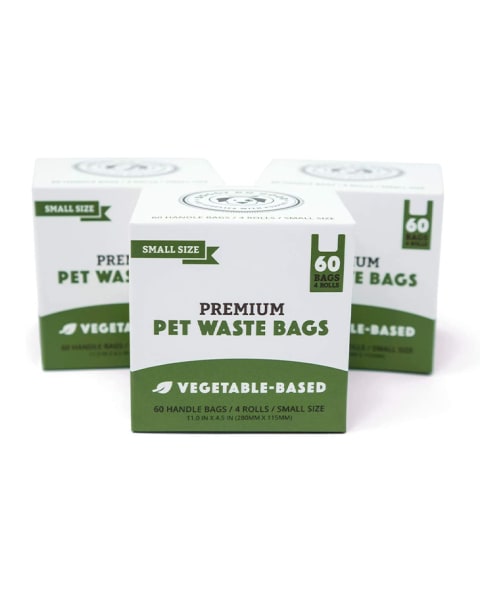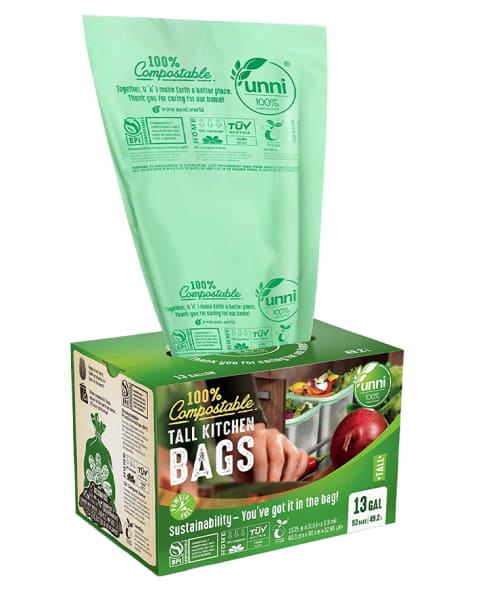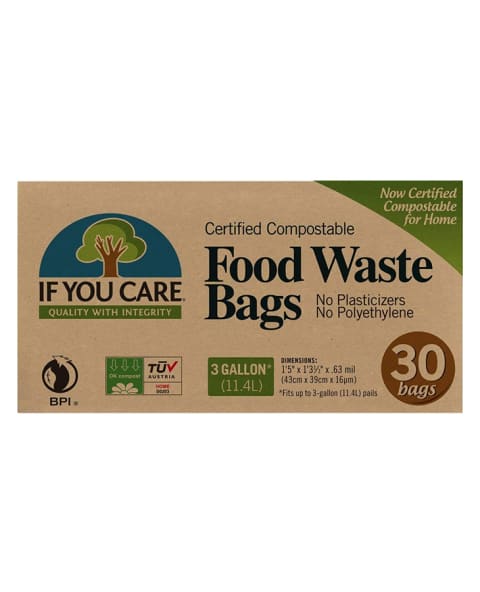While those two terms may sound interchangeable, they’re not exactly the same. If a bag is biodegradable, it means that when left in a totally natural environment, over time it will eventually start to degrade with the help of biological helpers like bacteria or fungi. While certainly a nice idea on paper, the term doesn’t say anything about how long this process takes to happen, so it’s a bit vague and leaves room to be abused or misused as greenwashing. If a bag is compostable, it means that it will break down in a very specific set of controlled conditions within a certain amount of time, without leaving any toxic residue in the environment. While this term can also be misused, it’s more strictly regulated. Compostable bags are usually made from plants like corn or potatoes instead of petroleum. If a bag is certified compostable by the Biodegradable Products Institute (BPI) in the U.S., that means at least 90% of its plant-based material completely breaks down within 84 days in an industrial compost facility. “All products certified by BPI are tested in independent, accredited testing labs,” a company representative tells mbg. “Those test results are then evaluated by a third-party technical reviewer.” Nearly 12,000 products are now third-party certified by the BPI and carry its signature leaf-and-tree seal. If you’re looking for a trash bag that can quickly return to the earth after you’re done with it, that’s the seal to look for. Industrial compost facilities create the ideal conditions (hot, moist, and well-aerated) for these bags to break down quickly and without a trace. Though it’s important to note that not every industrial composting facility will accept these bags: “Some [facilities] are completely fine with compostable bags. Others don’t want it because it can open the door for contamination with noncompostable bags,” Alyssa Eiklor, an environmental analyst at the waste management division of Vermont’s Department of Environmental Conservation, previously told mbg. So check in with your local composter before sending them bags they can’t use. If they don’t accept them, they’ll have to ship them off to the dump, where they won’t degrade nearly as quickly. This is where things get complicated: When a compostable bag is tossed in the landfill, it’s starved of the oxygen it needs to break down. Instead, it just sits there and can stick around for a similar amount of time as that plastic garbage bag. (Though it still took fewer fossil fuels to create in the first place, an environmental plus.) This means that to function as designed and marketed, compostable trash bags actually need to be filled with compost (organic food and yard waste) and not trash (everything else). They also need to be disposed of properly: If they end up as litter, research shows that they will not biodegrade in the natural environment, at least not within three years2. Primode 100% Compostable Trash Bags ($14.95 for 100 bags) Doggy Do Good Compostable Dog Waste Bags ($24.98 for 60 bags) UNNI ASTM D6400 100% Compostable Trash Bags, 13 Gallon ($18.95 for 50 bags) If You Care Compostable Trash Bags ($6.31 for 30 bags) Emma received her B.A. in Environmental Science & Policy with a specialty in environmental communications from Duke University. In addition to penning over 1,000 mbg articles on topics from the water crisis in California to the rise of urban beekeeping, her work has appeared on Grist, Bloomberg News, Bustle, and Forbes. She’s spoken about the intersection of self-care and sustainability on podcasts and live events alongside environmental thought leaders like Marci Zaroff, Gay Browne, and Summer Rayne Oakes.






